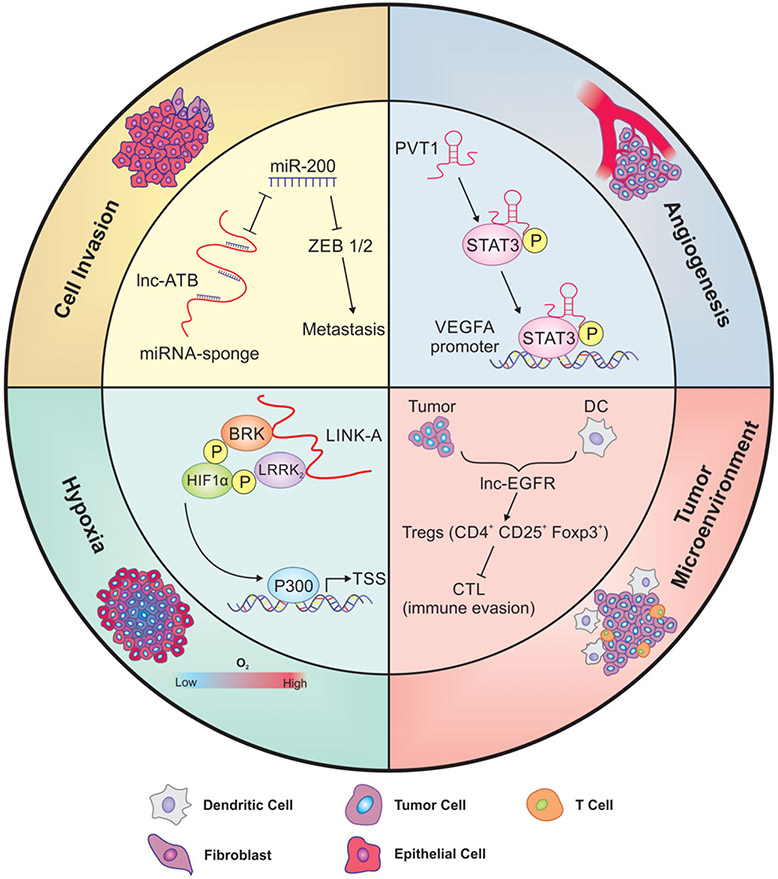FIGURE 1.
The role of lncRNAs in metastatic processes. Metastasis is characterized by a series of cell-biological events, and lncRNAs have been shown to play an indispensable role in every step of metastasis. To colonize distant organs, cancer cells must have the capacity to move, adapt, and survive in the new environment. Cell invasion: the acquisition of EMT features leads to increased migratory ability and invasiveness, which results in tumor cell dissemination. Lnc-ATB functions as a miRNA sponge, competitively binds to miR-200, and reduces the effect of miRNA on its targets ZEB1/2, thus promoting metastasis. Hypoxia: as a tumor outgrows the oxygen supply, it either co-opts preexisting vessels of host organs or induces angiogenesis. LINK-A facilitates the recruitment of BRK and LRRK2 to phosphorylate and stabilize HIF-1α. Stabilized HIF-1α upregulates downstream genes to promote cancer cell survival in low-oxygen conditions. Angiogenesis: in the meantime, the generation of new blood vessels to obtain adequate supply of oxygen and nutrients becomes an indispensable step in the process of cancer outgrowth. PVT1 directly binds to STAT3 in the nucleus and increases its protein stability which further activates VEGFA expression to stimulate angiogenesis. Tumor microenvironment: the communication between cancer cells and their microenvironment is also critical for sustained tumor growth in distant organs. In response to evolving environmental conditions, stromal cells such as immune cells, CAFs, and ECM components change over the process of cancer progression to provide favorable surroundings and support tumor growth. Treg cells have been found to promote tumor metastasis through suppressing innate and adaptive antitumor immunity. Lnc-EGFR regulates Treg differentiation and interferes with cytotoxic T cell function which leads to immune escape

